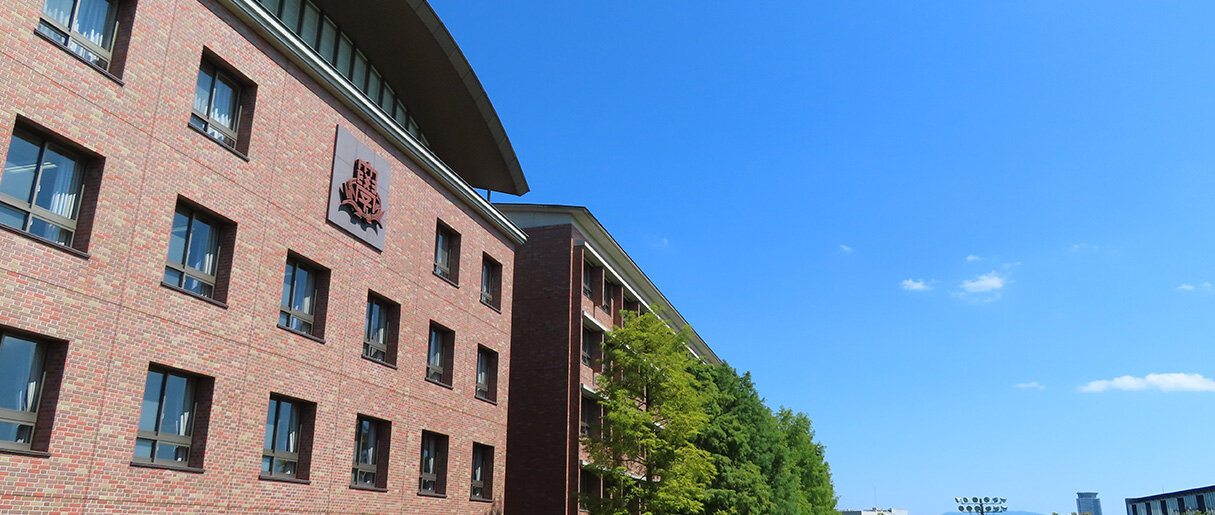History of the Graduate School of Foreign Language Education and Research
The Graduate School of Foreign Language Education and Research at Kansai University has a rich history of contributing to the field of foreign language education. Established in April 2002 as the first institution in Japan to focus on this area of study, the Graduate School offers both Master's and Ph.D. programs, specializing in teaching and researching foreign language education. The Master's program has a capacity of 25 students, while the Ph.D. program can accommodate up to eight students. As of 2022, the Graduate School has produced 447 Master's degree holders and 36 Ph.D. degree holders.
The institute strives to train educators, researchers, and practitioners wishing to refine their research and practical achievements in three principal areas: language learning and teaching, intercultural communication, and translation and interpretation studies.
The Graduate School of Foreign Language Education and Research welcomes students from various fields with a strong interest in language teaching. The school has attracted students from Kansai University, other universities across Japan, as well as international students and working professionals.
To mark its 20th anniversary in 2022, the institute is committed to continuing its research and education activities with the aim of contributing to academic and practical fields and promoting the diversification of learning opportunities and methods, including the introduction of distance learning.
Admission / Curriculum development and implementation / Degree awarding policy
- Diploma Policy
- Curriculum Policy
- Admission Policy
Master's Degree Program
The Graduate School of Foreign Language Education and Research Studies (Master's Degree Program) awards the master's degree (Foreign Language Education and Research) to those who have completed the prescribed course of study and acquired the following knowledge and skills, abilities to think, judge and express themselves as well as a proactive attitude:
- Knowledge and Skills
Students have acquired a broad range of interdisciplinary knowledge required for each field of foreign language education, intercultural communication, and interpretation and translation studies and can make use of their academic knowledge comprehensively. - Abilities of Thinking, Judgement, and Expression
Students have acquired the ability to operate in a foreign language and understand different cultures and can exercise the "Think and Act" capabilities by making use of their broad range of interdisciplinary knowledge and contribute to society by disseminating their own research and practical results. - Proactive Attitudes
Students can observe and analyze their circumstances to explore issues in a proactive manner, and propose and execute solutions based on data.
Ph. D. Degree Program
The Graduate School of Foreign Language Education and Research Studies (Ph.D. Program) awards the doctor's degree (Foreign Language Education and Research) to those who have completed the prescribed course of study and acquired the following (a) knowledge and skills, (b) abilities of thinking, judgment, and expression, and (c) proactive attitudes:
- Knowledge and Skills
Students have acquired the interdisciplinary knowledge and skills required for the field of foreign language education and research as an autonomous researcher or a highly-qualified professional and can apply them comprehensively to their own research and teaching. - Abilities of Thinking, Judgement, and Expression
Students have acquired a high-level of ability to operate in a foreign language and understand different cultures and can exercise the "Think and Act" capabilities by making use of their excellent academic knowledge and contribute to society by disseminating their own research and practical results. - Proactive Attitudes
Students can observe and analyze their circumstances as a researcher or a highly-qualified professional in a proactive manner, and propose and execute solutions according to data based on high levels of professional ethics.
Features of the Program
As an interdisciplinary program covering the broad field of foreign language education, we welcome interested students from any academic background. A variety of study options are available to accommodate working professionals, including evening and Saturday classes, a three-year express route for the undergraduate program, and a one-year Master's program designed specifically for in-service teachers. In addition, we provide intensive courses during the summer and winter vacation periods, enabling greater convenience for students to attend. Our selection process includes interviews, and qualified applicants may be exempt from the foreign language proficiency test.
Educational Content
MA
The MA program aims to develop highly skilled professionals with a balance of theoretical and practical knowledge, primarily through required first-year courses, a range of methodologically and practically oriented classes, and a seminar course in the student's area of specialization. The curriculum is designed to be flexible, with guidance from faculty allowing students to create a program tailored to their individual needs.
The program offers three pathways of study:
- Thesis Pathway: Recommended for research-oriented students, this pathway requires the completion of a thesis in addition to coursework.
- Teaching Materials Development Pathway: Recommended for students wishing to focus on practical aspects of language teaching, this pathway requires the development of teaching materials (with a commentary) in addition to coursework.
- Comprehensive Examination Pathway: This pathway is available only to students admitted under the Experienced Teachers' One-Year MA Program and requires a comprehensive examination to be taken at the end of the program.
Ph.D.
The Ph.D. program aims to train researchers and leaders in foreign language teaching. The curriculum consists of "Supervised Ph.D. Research" and "Special Lecture." In the "Special Lecture" course, students deepen their understanding of specialized topics. In the "Supervised Ph.D. Research" course, each student conducts original research under the guidance of their supervisor, which will form the basis of their doctoral dissertation.


